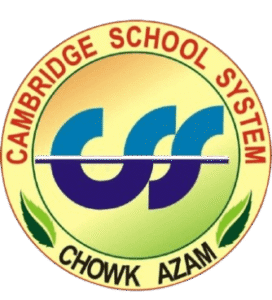Learning site Book
India was under colonialism from 1757 to 1947 prior to the establishment of Pakistan in 1947. History shows that the British authorities Experiential Learning established efficient rail and road networks in the nation to move their items and army ammunition from one location to another but no energetic efforts were made to educate the masses Chaudhary 2009. There were a few good quality schools that were established in the large cities of Pakistan where British army officers were stationed. In other regions of the nation the education system was not as productive and was mainly Islamic inclined in character and access to secular and modern education was beyond reach for the common populace Whitehead 2005.
Theological education was free and was carried out in either Persian or Urdu. As per the British colonial education policy Project Based Learning Urdu was used as the medium of instruction for the offspring of the masses and English as that for the privileged class children Coleman 2010. It is reported that the whole education sector has remained the most under-developed sphere despite the establishment of Pakistan. No tangible and visible actions have been made so far to reform the education sector specifically the country’s early education system while Pakistan is a signatory to global important treaties like Education for All and the Millennium Development Goals.
Pakistan education system
Ever since its establishment, Pakistan has been adopting the classical colonial education system that was based over 80 years ago and today most Pakistanis are of the opinion that this education system is not meeting the needs of the new Pakistan of the 21st century. There are primarily three different systems of education in Pakistan the national system for the middle and lower middle class the elite private Cambridge system for the upper class and the Deni Kadaris or religious schools Life Skills Education for poor households.
Public schools
The government controlled schools are the Community Engagement biggest dispensers of free education. Under this education system the extent of early childhood education ECE is extremely narrow and yet immature and not fully recognized Ministry of Education 2009. In public schools teaching and learning standards are not at all inspiring because the textbooks are old substandard teacher training programmed teaching in overcrowded classrooms shortages of teaching resources corruption in the appointment and transfer of teachers misusing the available limited school budgets and not having an effective monitoring system International Crisis Group 2014.
The International Reflective Learning Crisis Group 2014 adds that students of public schools in Pakistan are limited to an outmoded syllabus and can’t compete in a highly competitive job market. Evaluation of student learning is summative yearly tests that results in rote based learning to achieve good scores and these scores define the quality of education. Reports Social Emotional Learning also indicate that the educational success of primary schools is very poor since teachers in public schools have less of their instruction time in the classroom Coleman 2010. The teacher pupil ratio till Class 5 is 1 35 40 that is not desirable. Below for details in more.
For profit non elite private schools
The private sector provides the largest number of organized pre primary education in Pakistan. Opening schools is Global Citizenship Education, Holistic Education, Communication Skills, Learning through Play, Service Learning, amongst the business ventures which have grown immensely in Pakistan during the last decades to bridge the gap left by public sector education that has lost quality.
Middle and lower middle class families are catered to by these private schools which assure quality English language education Coleman 2010. At the level of higher secondary a total of 31% of students study in private schools in Pakistan. Most of these schools do not have teachers and more than 50% of teachers in private schools are unprofessional and therefore are regarded as untrained Lynd 2007.
Most of the non elite private schools are more endowed with furniture and other amenities. They allege to employ revised curriculum textbooks Maker Education but they also provide examination oriented preparation to secure good grades Malik 2010. Private preschools in Pakistan mostly focus on educational needs of children but they usually do not include their overall needs. Non elite private schools are operated by individuals groups religious people registered societies and political parties.
Pre primary education forms part of the private school system. It offers compulsory early childhood education to three to six-year-olds Coleman 2010. The Pakistan private sector also provides care and programmed education for children below the age of three years UNESCO 2006. In the majority of instances the ratio of teacher Mindfulness in Education to student 1 30 35 is discouraging.
Cambridge school system
Private schools for affluent families were present in Pakistan before independence during the British period. Elite schools were established to generate human resources for the management of state institutions under the policies of the British. Currently these elite private schools like the Lahore American School the Karachi and Lahore Grammar Schools Aitchison School and College Beacon House the City Schools and the Growth Mindset Roots School System are small in number and offer systematic pre primary education ECE for the kids of affluent families Coleman 2010.
In theory they maintain the Cambridge system of education and International Baccalaureate curriculum. These schools have high fees and possess world-class ECE facilities such as learning materials and properly equipped classrooms.
The International Crisis Group 2014 explains that elite private schools are taught in English have a different curriculum and possess a fee structure that is out of reach for most families. In elite private schools the ratio of teachers to students 1 10 12 is highly in their favor. The offspring of the Mind Body Connection in Learning elite class attending such schools are being prepared better for better remunerated job prospects. The professionals providing education in such schools are better qualified and better compensated relative to teachers in non elite private schools.
Deni Kadaris system
Deni Kadaris schools do not provide early years education as good secular schools are structured into classes of ECE for children’s overall development. They offer free religious education boarding and meals to Taliban students between the Design Thinking in Education ages of 10 and 28. But some of these Damaris have nursery classes too to provide Islamic and Quranic education Coleman 2010. As far as numbers go Deni Kadaris schools are the second largest providers of education in Pakistan and serve primarily poor rural families and the proletariat Anjum 2017.
The Deni Kadaris schooling system within Pakistan adheres to the traditional Darsie Nizam syllabus2 as a foundation for its course of study that educates religious education by memorization and does not incorporate critical thinking. This education system operates in parallel to contemporary and secular education and tries to empower its followers in order to encounter current ideas Anjum 2017. This education system provides Islamic oriented education and adopts a traditional Islamic curriculum according to the education of five various interpretations3 of the Islamic fila school of thought Coleman 2010 International Crisis Group 2014.
Different curricula education systems provide a lot of controversies in society, according to Pakistan national education policy Ministry of Education 2009. The Deni Damaris do not practice or provide ECE but instead adhere to orthodox theological instruction via rote memorization in order to pass on what has been documented Emotional Wellbeing Programs in the scriptures. It is said that corporal punishment is permitted in an effort to maintain the children submissive and obedient Akhtar 2011. Grading of the students’ learning is more traditional in religious schools because they use paper pencil exams and need verbal recitation of textbook knowledge so that they can give grades and averages.
Overview of ECE in Pakistan
The literature illustrates that early development leads to successful school entry improved school performance and eventually noticeable success later in life Morgan 2011 Murtaza 2011. Studies have confirmed that early childhood is the most crucial developmental phase in life. ECE in Pakistani public schools is still not a completely Experiential Labs, Cross Cultural Collaboration, Student Led Conferences, Reflective Journals, Digital Storytelling, developed mature or well-understood area of education Malik 2010. Pakistan’s Ministry of Education 2009 recognizes that ECE has never been officially acknowledged by the country’s public sector.
In government-run schools the idea and awareness of ECE are minimal and have been restricted mostly to an informal class Kitchi class prior to Grade Shakil 2002. Not mature or not enrolled means Kitchi. No separate classrooms or instructors at the pre primary level for a total of 4.532 million children exist in the public sector Asmatullah 2017.
For the greater majority Kitchi class children are housed together with Class 1 and Class 2 learners under the same roof since nearly all public primary schools in the nation practice multigrade sitting arrangements as a result of Creativity Workshops limited availability of classrooms and teachers. There are no specially prepared classrooms for these young children nor do they have trained teachers in early childhood Khattak 2016 thus no proper instruction is conducted Shakil 2002. There are no age limits for the intake in this specific class. Pupils with an age of three to five are permitted to go to Coleman 2010.
In 2001, the government of Pakistan implemented an Education Sector Reform policy to meet Pakistan’s obligations to the Millennium Development Goals Education for All and the United Nations Convention on the Rights of the Child.
The establishment of a regular curriculum for the Kitchi classes and the introduction of additional kat chi classes were the primary objectives of this policy. In early 2002, the Teachers Resource Centre in Pakistan framed learning outcomes for national ECE curriculum which were updated in 2007 but owing to the lack of teachers classrooms and funds within the public sector the document of curriculum alone was unable to reach the children.
In spite of Acts like recently the Right Community Based Learning to Education Act codified under article 25A of the constitution plans documents and policies education Pakistan could not meet the Education for All goal for ECE by 2015. Pakistan needs to break out of and move above the scripts and take concrete measures to implement ECE at public sector schools.
NGOs and ECE in Pakistan
The absence of government interest and commitment towards reforms in the education sector has provided an opportunity for some NGOs in Pakistan to contribute towards introducing ECE programmed, especially in rural and the poorest and hardest to reach areas. A large number of national and international NGOs and civil society organizations have been implementing ECE programmed throughout the country.
Nearly all the programmed intervention being executed by NGOs are small in scope and reach and their intervention only covers the specified areas Shakil 2002. Donor agencies and NGOs such as the Aga Khan Development Network the World Bank the Global Partnership for Education the European Union UNICEF UNESCO Dubai Cares Augmented Reality Education Oxfam the Rupali Foundation Save the Children and Plan International have been contributing immensely towards taking ECE agendas further and meeting the requirements of the Education for All targets. The most major benefactor and first to introduce ECE programmed in Pakistan is said to be the Aga Khan Development Network.
It has been offering ECE services for learning resource management curriculum development infrastructure development teacher training and community development programmes alongside running good quality schools and child centered health education programmed throughout the country. Plan International has been supporting a limited number of public schools in Punjab and recently Right to Play has appeared in rural Sindh Pakistan spreading a happy atmosphere through play among young children.
Some of the major challenges
Some of the more general challenges that the country has been facing which have a huge bearing on its education sector are political instability perpetuation of the colonial education system a class divide education system lack of resources religious extremism and terrorism.
There is no political commitment thus ECE does not rank among government planning’s priority areas. Neither of the public universities of Pakistan provides degrees graduate courses teacher training programmed and world class research in education for ECE teachers. The available facilities of human and material resources in public and private schools are inadequate or incompetent enough to operate effective ECE programmed.
Most significantly an ECE framework is still to be developed which will inform the development implementation and assessment of ECE services nationwide. There is required a budget to initiate the provision of effective ECE services as well as to convert the presently traditional kat chi classes into enhanced early years classes in all public schools of Pakistan UNESCO 2006. (Conclusion)
In the public sector of Pakistan a class prior to Grade 1 is referred to as ECE and the age bracket for this class is three to five.
In general public schools in Pakistan have been getting children ready to pass examinations and motivating students towards acquiring concepts by memorization instead of molding logic reasoning and conceptual grasp.
The prevailing curriculum strategies in Pakistan emphasize language and intellectual competencies and overlook social emotional cultural physical and secular spiritual growth. The fight for ECE must be fought in the people’s hearts and minds because there are some signs that the government is taking steps to prioritize provision of ECE in government schools because ECE has started gaining significance among policymakers.




